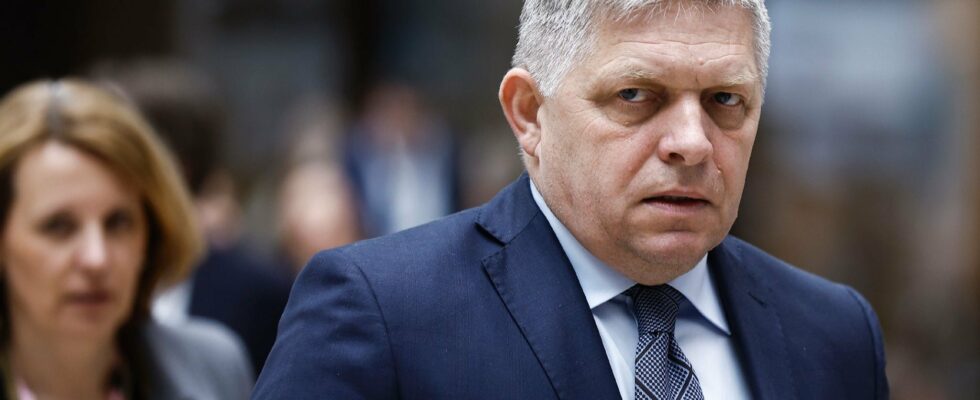He is not yet completely out of the woods… Slovak Prime Minister Robert Fico, in “critical” condition after being injured Wednesday by several bullets, underwent surgery which went well, a member said of the government of this central European country.
“I think that in the end he will survive,” Deputy Prime Minister Tomas Taraba told the BBC, according to whom the surgery went well. “He is not in a situation that threatens his survival at the moment,” he added.
Previously, Interior Minister Matus Sutaj Estok indicated in a press conference that he had been informed by doctors that the Prime Minister was “in critical condition”.
“A political attack”
Robert Fico, 59, was evacuated by helicopter to Banska Bystrica, a town in central Slovakia, the government said in a statement. According to Defense Minister Robert Kaliniak, who went to the hospital where the Prime Minister was operated on, this attack is “a political attack” to which we must “react accordingly”.
Slovak television broadcast images of a man in jeans handcuffed on the ground. The person detained and suspected is a 71-year-old man from the center of the country, identified by Slovak media as a local writer. “I think I can confirm it, yes,” Interior Minister Matus Sutaj Estok replied to journalists who questioned him about the identity of the shooter.
The suspect’s son told news site aktuality.sk that his father had a legally registered firearm. Asked about his father’s feelings about Robert Fico, he replied: “I’ll tell you one thing: He didn’t vote for him. That’s all I can say.”
Robert Fico was shot “several times,” according to his official Facebook page. The attempted murder came after a cabinet meeting in Handlova, central Slovakia. “The police have arrested the attacker and will provide more information as quickly as possible,” the outgoing president of Slovakia, Zuzana Caputova, also announced in a statement, describing the attack on her political opponent as an “attack against democracy”.
A pro-Putin ex-communist
After returning to power as prime minister in October, Robert Fico questioned Ukraine’s sovereignty and stopped all military aid to the country. This former member of the Communist Party, who founded his own party and rejects the labels of “populist” and “demagogue”, opposed sanctions against Russia.
In April, he nevertheless made a change of tone regarding the war in Ukraine, advocating a peaceful solution which respects the “territorial integrity” of this country. His ally in the government, Peter Pellegrini, won the presidential election last month, well ahead of a pro-European diplomat, by making the war in Ukraine a key element of the campaign in this country of 5.4 million inhabitants, member of the European Union and NATO.
Its government coalition notably adopted a controversial bill on public radio and television RTVS which the government accuses of lacking objectivity
Strong emotion in Europe
The leaders of the European Union institutions reacted strongly to the news. The President of the European Commission Ursula von der Leyen deplored the “despicable attack” against the Slovak Prime Minister, judging that “such acts of violence have no place in our society and undermine democracy, our common good.” more valuable.”
“Nothing can ever justify violence or such attacks,” stressed the President of the European Council Charles Michel, while NATO Secretary General Jens Stoltenberg declared himself “dismayed”. In Hungary, which borders Slovakia, Prime Minister Viktor Orban said he was “deeply shocked by the heinous attack perpetrated against my friend, Prime Minister Robert Fico”.
Ukrainian President Volodymyr Zelensky denounced the “appalling” attack on the Slovak Prime Minister. And Russian President Vladimir Putin spoke of a “heinous crime”, describing Robert Fico “as a courageous and determined man”.
French President Emmanuel Macron said he was “shocked by the shots that hit the Slovak Prime Minister” and expressed his “solidarity” for the Slovak people. German Chancellor Olaf Scholz, for his part, said he was “upset by the cowardly attack” because “violence can have no place in European politics”. The head of the Italian government Giorgia Meloni expressed “the strongest condemnation of all forms of violence and attack on the basic principles of democracy and freedom”. And British Prime Minister Rishi Sunak said he was “shocked to hear this appalling news”.
